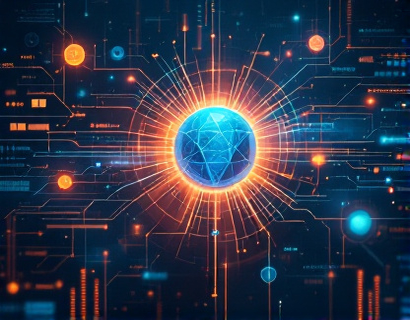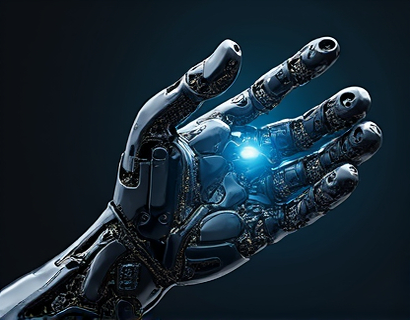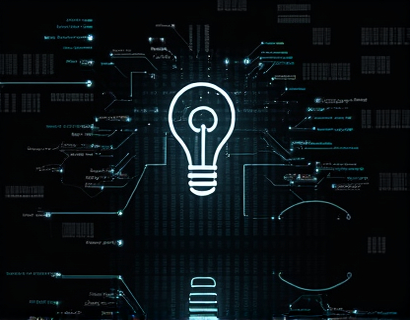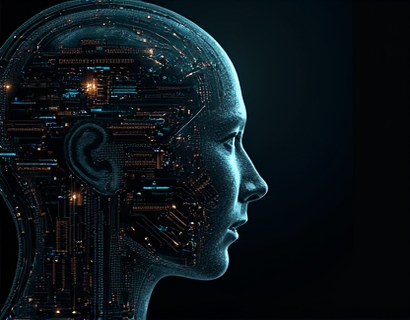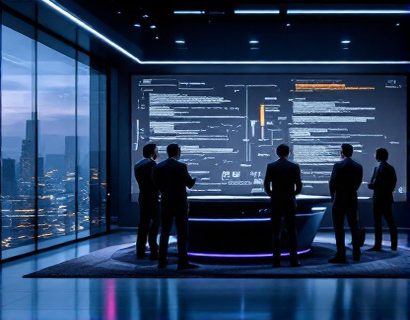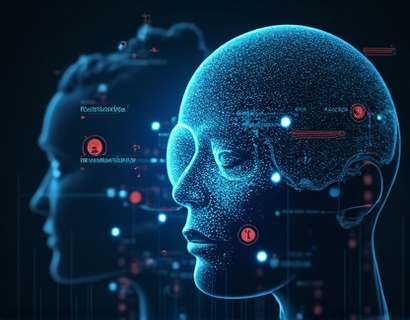AI-Driven Conflict Solutions: Navigating Adversarial Challenges with Intelligent Chat Technology
In an increasingly complex world, conflicts and adversarial situations are inevitable, whether in personal relationships or professional environments. The traditional approaches to conflict resolution often fall short, especially when dealing with multifaceted and dynamic challenges. This is where AI-driven solutions come into play, offering a new paradigm for navigating and resolving conflicts. An intelligent chat technology, powered by advanced artificial intelligence, provides personalized strategies and insights, empowering users to achieve strategic success in managing adversarial situations.
The integration of AI in conflict resolution is not just a novel concept but a practical tool that can significantly enhance the way we handle disputes. These systems are designed to understand the nuances of human communication, analyze situations, and suggest tailored approaches to resolution. By leveraging machine learning algorithms and natural language processing, these AI chat platforms can adapt to various contexts and provide insights that are both relevant and actionable.
Understanding AI in Conflict Resolution
AI in conflict resolution operates on several key principles. First, it involves the analysis of vast amounts of data to identify patterns and trends in human behavior during conflicts. This data-driven approach allows the AI to understand the underlying causes of disputes and predict potential outcomes of different resolution strategies. Second, AI systems use natural language processing to interpret and respond to user inputs in a way that mimics human conversation, making the interaction more natural and effective.
One of the most significant advantages of AI-driven conflict resolution is its ability to provide personalized solutions. Unlike generic advice or one-size-fits-all approaches, AI can tailor recommendations based on the specific context of the conflict, the personalities involved, and the historical data of similar situations. This personalization is crucial in complex scenarios where multiple factors interplay to create a unique adversarial environment.
How AI Chat Technology Works
An AI chat platform for conflict resolution works by engaging users in a conversational interface. When a user presents a conflict or adversarial situation, the AI listens to the details provided and processes this information through its algorithms. The AI then generates a response that includes potential strategies, insights, and steps to consider. This process is iterative, meaning the AI can refine its suggestions based on user feedback and additional context provided during the conversation.
The AI's knowledge base is continuously updated with new data and insights, ensuring that the recommendations remain current and effective. This dynamic learning capability is essential in a field where new conflict scenarios emerge regularly. The AI can also draw from a vast repository of historical conflict data, allowing it to recognize patterns and apply proven resolution techniques to new situations.
Benefits of Using AI for Conflict Resolution
The benefits of using AI-driven chat technology for conflict resolution are manifold. Firstly, it provides immediate and accessible support, which is particularly valuable in urgent or time-sensitive situations. Users can receive guidance and strategies without the delays associated with traditional methods such as mediation or legal proceedings.
Another significant benefit is the objectivity of AI. Human mediators or advisors can bring their biases and personal experiences to the table, which may influence the resolution process. AI, on the other hand, operates based on data and algorithms, ensuring a more neutral and impartial approach. This objectivity can help in de-escalating tensions and fostering a more constructive dialogue.
Additionally, AI chat platforms can handle multiple conflicts simultaneously, making them a scalable solution for organizations and individuals dealing with numerous adversarial situations. This efficiency not only saves time but also reduces the emotional and mental strain associated with managing multiple conflicts.
Case Studies and Real-World Applications
While the concept of AI-driven conflict resolution is still evolving, there are emerging case studies and real-world applications that demonstrate its potential. For instance, in the corporate world, companies are beginning to integrate AI chatbots into their HR departments to handle employee disputes and workplace conflicts. These chatbots provide initial assessments and recommendations, which can then be escalated to human resources professionals for further action.
In the realm of personal relationships, AI chat platforms are being used to help individuals navigate complex family dynamics, romantic relationships, and friendships. Users have reported positive outcomes, citing the AI's ability to offer fresh perspectives and practical advice that they might not have considered otherwise. These platforms are particularly useful for those who are hesitant to seek traditional counseling due to cost or accessibility issues.
Another area where AI-driven conflict resolution is showing promise is in community and public disputes. Local governments and community organizations are exploring the use of AI chatbots to mediate neighborhood conflicts, manage public resources, and address citizen complaints. The scalability and 24/7 availability of these chatbots make them an attractive option for managing a high volume of community-related issues.
Challenges and Limitations
Despite the numerous benefits, AI-driven conflict resolution is not without its challenges and limitations. One of the primary concerns is the accuracy and reliability of the AI's recommendations. While AI can process vast amounts of data, it relies on the quality and relevance of this data. Inaccurate or outdated information can lead to suboptimal or even harmful suggestions.
Another limitation is the emotional aspect of conflicts. Human emotions play a significant role in how individuals perceive and respond to adversarial situations. AI, while advanced, may struggle to fully understand and address the emotional nuances of a conflict. This is an area where human mediators and counselors still have a crucial role to play, complementing the AI's analytical capabilities.
Privacy and data security are also critical concerns. Users must trust that their sensitive information is handled securely and confidentially. Ensuring robust data protection measures is essential to build and maintain user trust in AI-driven conflict resolution platforms.
Future Developments and Trends
The future of AI-driven conflict resolution is promising, with several trends and developments on the horizon. One key area is the integration of emotional intelligence into AI systems. Advances in affective computing and sentiment analysis can help AI better understand and respond to the emotional states of users, making the resolution process more empathetic and effective.
Another trend is the development of multi-agent systems, where multiple AI entities collaborate to address complex, multi-faceted conflicts. This approach can leverage the strengths of different AI specializations, providing a more comprehensive and nuanced resolution strategy.
Furthermore, the increasing availability of real-time data and the Internet of Things (IoT) can enhance the AI's ability to monitor and respond to conflicts as they unfold. For example, in urban planning, IoT sensors can provide real-time data on community tensions, allowing AI to offer timely interventions and preventive measures.
Conclusion
AI-driven conflict resolution represents a significant advancement in how we approach and manage adversarial challenges. By providing personalized, data-driven insights and strategies, these intelligent chat technologies empower individuals and organizations to navigate complex conflicts more effectively. While there are challenges to overcome, the potential benefits are substantial, making this an exciting and rapidly evolving field. As AI continues to mature, its role in conflict resolution is likely to become even more integral, offering new possibilities for achieving strategic success and harmony in both personal and professional life.




